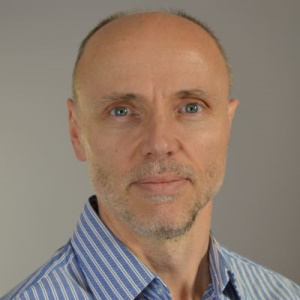Adrian Cull
Founder of the Live Forever Club

Promoting equality in longevity.
Trustee Profile
Adrian is on the society’s board of trustees.
Tell us a bit about your career development
My background is a bit different to most of the trustees. My degree was in Physics and Electronics at the University of St. Andrews, followed by a continuing career in IT, now with a focus within healthcare, pharmaceuticals and life sciences. However, the start of the normal slow physical decline in my 40s got me interested in the biology of ageing, fortuitously around the time the subject seems to have taken off generally.
Why is your area of research important in our understanding of the biology of ageing?
I’m a generalist, keeping abreast of the many developments across the hallmarks of ageing, though obviously only at a high level – I quickly learnt that every aspect of ageing just gets more complicated at every level you look at it. So rather than doing my own research, I try to raise awareness of the exciting work going on in the area through the Live Forever Club that I founded in 2014. Although I’m hoping for more radical results than the society is aiming for, it’s clear that curing ageing and true rejuvenation won’t happen without the continued investment in fundamental research into the biology of ageing.
What is your role at the BSRA and what does it involve?
I look after the IT systems (website, email, etc.) and do my best to get the great work done by the society out on social media. The more people who are aware of what we are doing means more people joining as members or attending the annual scientific meeting – and, of course, that then means we can fund even more research into the biology of ageing.
Why did you join the BSRA?
Ageing research is growing rapidly, however much of the publicity goes to institutions in the US and other countries. So, as well as wanting to help the BSRA raise awareness of work going on into the causes and effects of the ageing process generally, I particularly wanted to help promote developments happening in the UK.
Has the being a BSRA trustee been valuable for your professional development?
As a non-academic, it’s been interesting to see how research is performed and published. It’s also allowed me to meet people that I may not normally come across, broadening my understanding of the different areas of ageing research. At my first ASM I even got to meet Brian Kennedy, one of my longevity medicine heroes.
